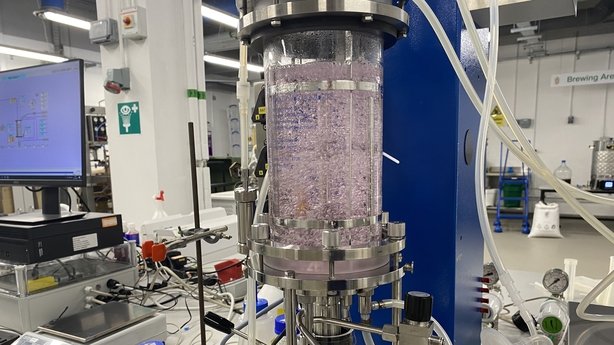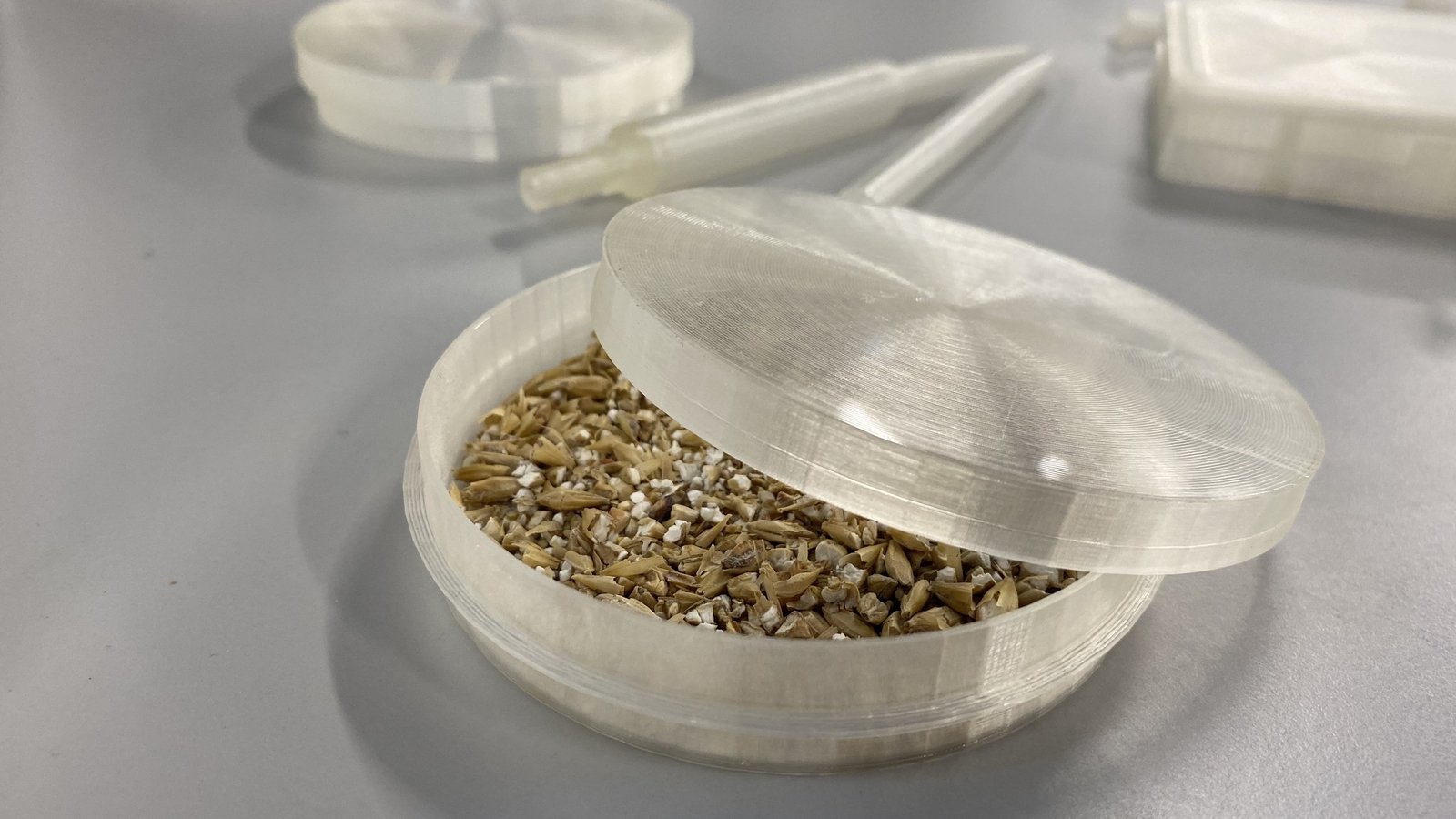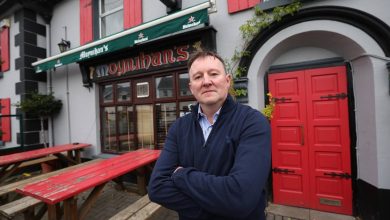DCU scientists have received more than €2 million for research into turning waste from breweries and distilleries into more environmentally friendly plastic.
The Grain-4-Lab project works on the transformation of grains and leftover liquids from the fermentation process.
The team developed a process that produces a plastic which they have turned into pipettes, petri dishes and other plastic lab consumables.
The plastic is biodegradable and the process uses less energy and produces less carbon than making plastic from fossil fuels.
“The standard fossil plastic we’re referring to could use 5 kilograms of CO2 to make a piece of plastic, compared to 1 kilo of CO2 to make our plastic,” said Dr. Jennifer Gaughran, assistant professor at DCU’s School of Physical Science.
Researchers around the world are working on processes to make bioplastics, as concerns about plastic pollution and reliance on fossil fuels grow.
However, many processes use crops or land that could be used to produce food, which is not ideal in a time of growing global food insecurity and concern for biodiversity.
Dr Brian Freeland from DCU’s School of BioTechnology said what’s new about what the team is studying is “we don’t use any food sources to make our bioplastics, so we won’t be in competition with the food needs of the world”.
Ireland has seen a massive growth in the number of distilleries in recent years, from three to 40, and they all produce waste.

The growing popularity of craft beers has also seen the opening of new micro-breweries across the country.
Neil Conway of the Waterford Distillery, which makes a peated single malt Irish whiskey, says some of their leftovers are used by farmers, but the waste stream is increasing.
“It’s very, very difficult for new breweries and distilleries to get rid of their waste,” Conway said.
“So when these guys reached out to me about getting involved in the project, it was a win-win situation for us. It’s going to be a win-win situation for the industry.”
The DCU team claims that one distillery generates enough waste to supply the raw materials for plastic consumables to every science lab in Ireland for a year.
Once scaled, their process could reduce the 5.5 million tons of plastic waste from science labs around the world each year.
Dr Gaughran says there is high demand from laboratories.
“Everyone is calling for greener solutions,” she said.
“They just aren’t there at the moment. We’re hoping to fill that void.”

Speaking of the award, the Minister of Higher and Higher Education, Research, Innovation and Science, Simon Harris, said he was “delighted to announce that Grain-4-Lab is the winner of the Plastic This year’s challenge as part of the SFI Future Innovator Prize”.
“I would like to congratulate the team – Dr Jennifer Gaughran, Dr Brian Freeland, Ms Samantha Fahy, Dr Susan Kelleher and Dr Keith Rochfort from Dublin City University – for their leadership.”
During the award phase of the award, the Grain-4-Lab team will focus on scaling its laboratory component manufacturing process, starting with petri dishes and expanding to other consumables, while developing a framework for the adoption of sustainable practices in laboratories.
The team will also continue to validate its approach, engaging with stakeholders across the value chain and developing commercialization plans for its technology.
Dr Ruth Freeman, Director of Science for Society, Science Foundation Ireland added her congratulations.
“I would like to congratulate Grain-4-Lab, Microplastics-free Plastics and the other teams who participated in the SFI Plastics Challenge, for their innovative and forward-thinking ideas, which are making significant progress in solving future societal challenges and sustainability goals,” said Dr. Freeman.
“Single-use plastic is a major contributor to global pollution, and it is essential that we try to reduce our consumption in all aspects of society. Similarly, the waste produced in Irish breweries and distilleries is an emerging problem. and growing, with an impact on the environment.
“Grain-4-lab has come up with an inventive solution to two sustainability challenges, which will allow STEM researchers in Ireland to lead by example in reducing single-use plastics in labs while tackling ongoing sustainability challenges. evolution”.
A second prize of €250,000 was also awarded to the Microplastics-free Plastics team, led by Professor John Boland of Trinity College Dublin.
#DCU #team #rewarded #research #ecoresponsible #plastic






